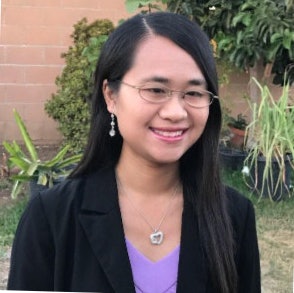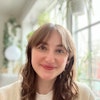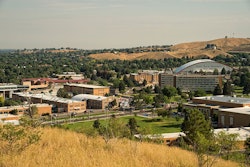Dr. Sandie Yi recalls when she first learned about disability culture. It was 2006, and she was a 24-year-old artist about to attend the Bodies of Work festival, a Chicago-area event for disability arts and culture. At first, she said, she wasn’t sure quite how she fit in as part of the disability community.
“I was born with two fingers, two toes on each limb. It runs in my family, but my family rarely talked about it,” said Yi, an assistant professor in the art therapy and counseling department at the School of the Art Institute of Chicago. Dr. Sandie Yi, assistant professor in the art therapy and counseling department at the School of the Art Institute of Chicago
Dr. Sandie Yi, assistant professor in the art therapy and counseling department at the School of the Art Institute of Chicago
“I began meeting a lot of disabled artists, disability scholars and activists, and that really changed my view — not just eyesight — it’s a physical, sensorial, and emotional view of this whole world," she said.
Discovering disability pride helped Yi “find the words” to describe her experience.
Yi shared her story at the University of Illinois, Chicago (UIC) Symposium on Disability Cultural Centers (DCCs) in Higher Education.
The first DCC was developed in 1991 at the University of Minnesota, Twin Cities. In the last decade, the number of DCCs created or being created has accelerated. DCCs differ from disability accommodation centers, which focus on the individualized needs of a student. Instead, DCCs focus on building community and the intersections of identity. UIC’s Symposium, held during Disability Pride Month, gathered DCC leaders and experts into conversation, reflecting on how they built their DCCs and sharing strategies and best practices to empower attendees.
“In the past, I learned about disabled as [being] bad — you cannot do anything, you always need help,” said Yi. “But disabled actually means how the larger system oppresses and disables us.”
Dr. Margaret Fink, director of the UIC DCC, said that Yi’s story of learning about disability “resonated” with her own.
“Your sense of belonging is transformational when you meet other disabled people, when they clearly say, ‘You belong.’ We are in community with one another,” said Fink. “A lot of time, when you grow up as a disabled person in nondisabled culture, you’re encouraged to minimize it, approximate being nondisabled. You feel like you can’t show up as your full, authentic self.”
The University of California (UC), Berkeley, just opened its Disability Cultural Community Center (DCCC) in the middle of the pandemic, thanks to a coordinated effort led in large part by student activists.
Dr. Ann Wai-Yee Kwong, coordinator of the UC Berkeley DCCC, read from a student and community advocacy letter published in January 2018. “A cultural space on campus goes beyond basic compliance," said Kwong. "It would acknowledge disabled students as a strong sociocultural identity group as opposed to a constituency that needs ‘fixing,. Shame, isolation, and presuming incompetence looms over students when institutions fail to recognize their importance and place in our campus community.”
 Dr. Ann Wai-Yee Kwong, coordinator of the UC Berkeley Disability Cultural Community Center
Dr. Ann Wai-Yee Kwong, coordinator of the UC Berkeley Disability Cultural Community Center
“Approximately 30% of the UC Berkeley community, campus, staff, undergraduate and graduate students, post-docs, and faculty, identify as having [a] disability,” said Kwong. “We wondered, how can a university, which prides itself on being a space to allow self-exploration to encourage academic excellence, shun such a sizable portion of the population?”
Kwong said individuals with disabilities are “constantly under the emotional burden” of navigating spaces that do not inherently accommodate for various needs. Those complications can make it more difficult to focus on things like academic success and retention.
DCCs can sometimes be folded into the umbrella of larger diversity, equity, and inclusion (DEI) movements on campus. For an institution to not include disability in DEI “is not ok,” said Dr. Diane R. Wiener, research professor at Syracuse University (SU). SU established the nation’s second DCC in 2010.
“Disabled people are often hailing from other identities,” said Weiner. “Be collaborative from the get-go with the women and gender studies spaces, equity spaces, LGBTQ+ resource centers, [and] office of multicultural affairs. Accessibility, broadly defined, has to be part of every DEI conversation.”
Speakers at the symposium shared their respect and admiration for the advocacy work done by their predecessors. Fink described the disability pride movement as a planting of seeds.
“I want to center that story of emergence, the model of a plant with a whole root system that’s shaped and nurtured in connection with a lot of other elements: the soil, the air, rain, light, being tended,” said Fink. “That feels truer to how our work unfolds — in relationship to [disabled] ancestors, students who started an organization and students who sustained it, other cultural centers’ mentorship and solidarity, [and] different universities’ disability communities supporting one another’s work.”
Liann Herder can be reached at [email protected].
















